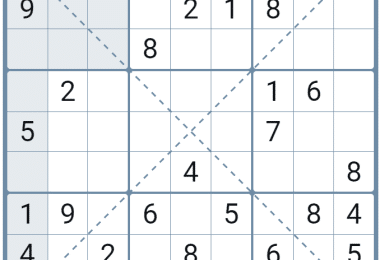High achievers in poker and other competitive areas tend to operate with a high level of intelligence. This concept focuses more on practical intelligence than on just raw IQ. They use logical problem-solving, pattern recognition, and critical thinking to gain an edge. Poker thrives on calculated decisions. Recognizing bet sizing or understanding ranges can mean the difference between stacking chips and sliding them across the felt. Many successful players combine these cognitive abilities with data analytics, studying statistics and poker software to fine-tune their strategies.
In comparison, professionals in fields like financial trading or competitive chess also excel at these and prove that intelligence in competitive environments is about turning knowledge into decisive action.
Learning is Never Over
Another unifying habit among high achievers in poker is their commitment to continuous learning. Poker’s meta-game evolves constantly, and staying stagnant is a liability. Elite players frequently review hand histories, study game theory optimum models, and learn from past mistakes. This continuous education isn’t exclusive to poker. Top athletes watch game footage, musicians rehearse relentlessly, and business leaders stay updated on market trends. Improvement requires humility and the willingness to adapt.
Furthermore, the best players in any field embrace constructive criticism. They surround themselves with other high achievers, seeking out mentorship and peer feedback to refine their skills. They also understand that setbacks are part of the journey and view losses as learning opportunities rather than failures.
The Role of Adaptability in High-Stakes Success
Adaptability is a defining trait among high achievers in competitive fields. Adjusting strategy based on changing dynamics is a hallmark of both top athletes and successful poker players. In poker, this could mean reading an opponent’s tendencies and shifting tactics mid-hand. Similarly, professional gamers or chess players exhibit similar traits when responding to unexpected moves or patterns during a match.
Such flexibility is built on experience and a deep understanding of the game or activity. Those who resist change often find themselves outpaced by competitors who embrace new strategies, techniques, or technologies. Being able to pivot when necessary ensures sustained success in ever-evolving environments.
Emotional Resilience and Objectivity
High-stakes poker demands airtight emotional stability. At a table, emotional outbursts expose weaknesses and can even tilt the entire dynamic in favor of opponents. Pros like Phil Ivey and Fedor Holz exhibit incredible composure. This lets them keep focus in decisive moments. Emotional self-regulation, coupled with patience, is essential.
Similar emotional discipline manifests among athletes, CEOs, and other high achievers when decisions carry major consequences. Separating emotion from execution allows these professionals to perform under immense pressure.
Drive and Discipline
The precision required to succeed at poker comes with intense discipline. Bankroll management, precise record-keeping, and resisting emotional betting are non-negotiable in professional circles. Discipline also keeps players grounded during downswings. Even the brightest poker minds can go broke without financial prudence and self-control.
This translates to consistent practice, strict schedules, and boundary enforcement in other fields. Professional jockeys maintain grueling fitness routines, and surgeons undergo years of methodical training before specializing. Sustained effort beats one-off brilliance every time for high achievers.
Is Perfectionism a Virtue or a Hindrance?
A topic worth debating is the role of perfectionism in high achievers. On one hand, poker players who strive for flawless execution avoid repeating mistakes. They analyze hands meticulously, finding even the smallest inefficiencies. This level of scrutiny has improved win rates across all stakes. On the other hand, an unhealthy obsession with being perfect has downsides. It can lead to over-analysis or hesitation during critical moments.
This applies in other spheres too. Some argue that perfectionism is a necessary innovation engine and drives people toward superior results. Others counter that it fosters burnout and delays productivity. High achievers walk a fine line here and balance ambition with reasonable expectations.
Risk Tolerance and Calculated Aggression
Successful poker players aren’t afraid to take calculated risks. Big pots are won by applying pressure through timely bluffs, semi-bluffs, or understanding optimal ranges for various scenarios. The confidence to bet on incomplete information, knowing the opponent’s reaction isn’t guaranteed, separates great players from mediocre ones.
This trait spills into other high-performing domains. Entrepreneurs invest capital into unproven markets, athletes take daring plays, and top-level engineers suggest unconventional solutions. Across industries, measured aggression often translates into dominance.
Organized Minds Lead to Consistency
The strongest players often exhibit meticulous organization, tracking results with precision. They develop routines to maximize productivity and keep distractions at bay. Mistakes aren’t brushed off. They’re logged in hand-review sessions to analyze alternatives and eliminate inefficiencies later.
Similar patterns are observed among airline pilots, who stick religiously to procedural checklists, or Michelin-star chefs, who prep kitchens down to the finest detail. For high achievers, achieving mastery is deliberate and repeatable.
Conclusion
High achievers in poker and other competitive fields exhibit a blend of essential traits that drive their success. Their practical intelligence allows for informed decisions under pressure. Emotional resilience and discipline are vital for maintaining composure in high-stakes situations, calculating risk-taking, and optimizing organizational strategies. They understand that learning never stops, adaptability is key, and success is often determined by consistency, discipline, and a willingness to embrace change.
The principles that define elite poker players are just as applicable to entrepreneurs, athletes, and professionals in high-stakes fields. By applying these traits—strategic thinking, calculated aggression, emotional resilience, and continuous self-improvement—anyone can maximize their potential and achieve sustained success in their respective domain. Are you ready to take your strategic thinking to the next level? Start incorporating these high-achiever traits into your daily routine today!







